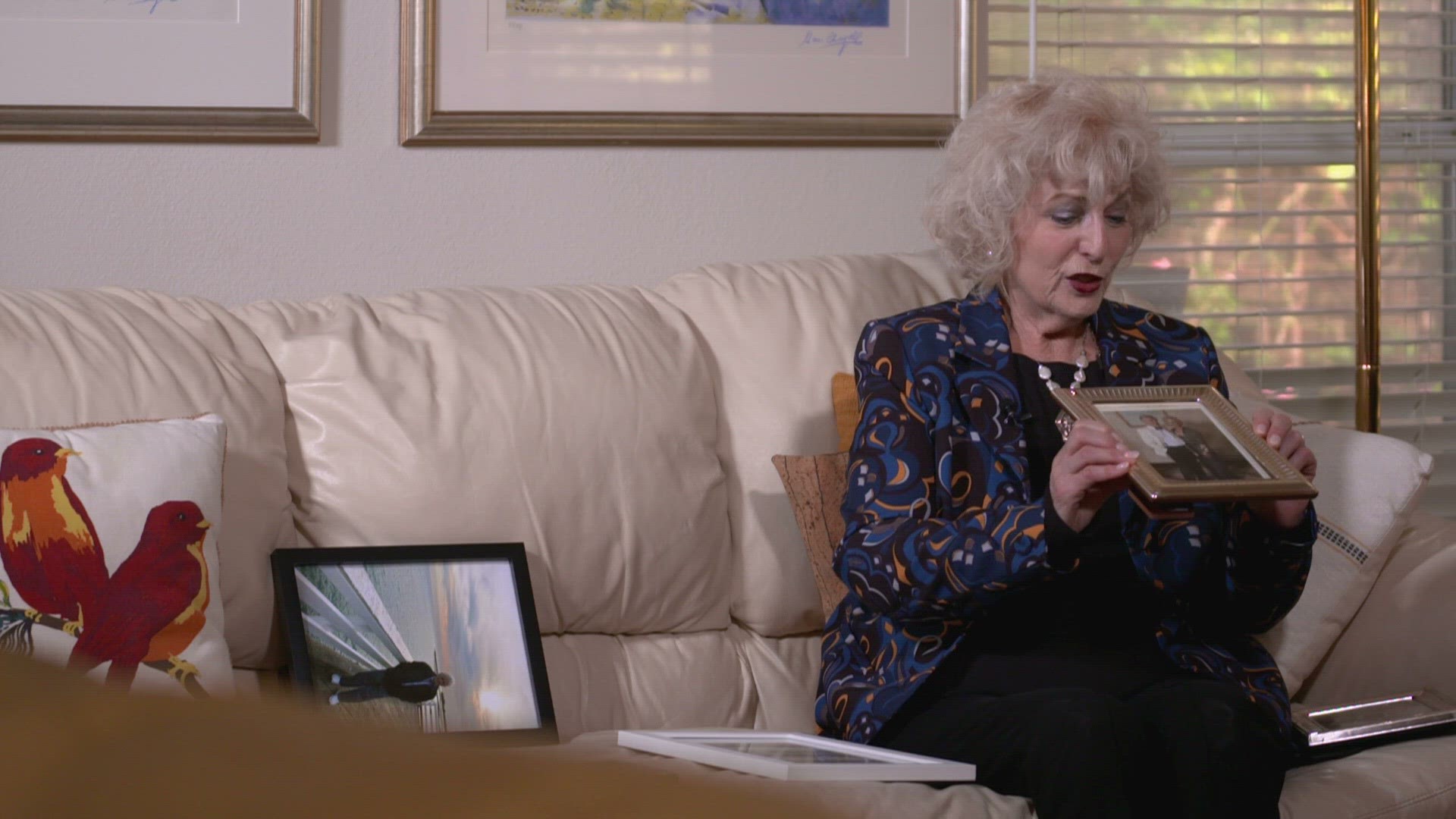DALLAS — Holocaust survivor Tibor Jacob Grunberger died on April 18, Holocaust Remembrance Day.
Grunberger was born in Michalovce, Czechoslovakia on February 27, 1931. In 1942, his father was deported to Poland, and Grunberger never saw him again. Grunberger and his brother, according to the Dallas Holocaust and Human Rights Museum, crossed the border into Hungary.
They were turned in, according to the museum’s records, held in a camp for three weeks, and then taken to the border with Slovakia. The brothers later returned to Budapest to try to reunite with family, were briefly ghettoized, escaped, and went into hiding, the museum said.
“He was very strong and he taught all of us in his family that you have to be strong, life is hard and you have to survive,” his wife, Ilona Grunberger told WFAA.
Remembering the war was painful for Grunberger, his son Glen added.
“He was haunted by it, he didn’t like to talk about it, so when he did talk about it, it was rough,” Glen said.
“He would just repeat things like, ‘all the bodies floating in the Danube,’ or other times he’d say, “you can’t imagine. You just can’t imagine.”
In 1961, Grunberger came to Dallas to rebuild. He became a Rangers fan and even became an original Dallas Cowboys season ticket holder.
“He came and decided American football was cool,” Glen laughed.
Grunberger also adored the Dallas Symphony and loved to sport a good tuxedo. He cherished his wife and children and grandchildren.
Glen said Grunberger would want people to remember what happened to his father and other family members killed, and to ensure something like the Holocaust never happens again.
“It was horrifying to him that white nationalism would be on the rise in this country,” Glen said.
“He would [also] say 'think about immigrants.' People have such visceral responses now, and he survived by coming into a country illegally, so he had a lot of compassion for people like that.”
Ilona said her husband had dementia, but believes he would’ve been happy to pass on Holocaust Remembrance Day.
“I think it’s so symbolic…I just think there’s no coincidences. It’s perfect.”
In 2016, Grunberger was interviewed by the Holocaust Museum. He said he wasn’t positive something like the holocaust wouldn’t happen again, especially as survivors pass away.
“But I hope to God," Grunberger said, “[no one] will have to go through what I went through.”

